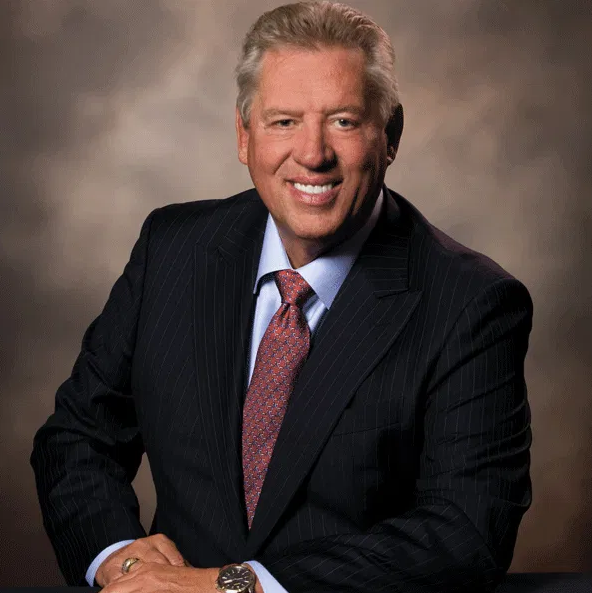Public speaking is an art that is essential for leaders in any field. Whether you are addressing a small team meeting or a large conference, your ability to communicate can have a notable influence on your results when done effectively success and the success of your organization. This guide is designed for beginners and advanced speakers, offering tips and strategies to enhance your public speaking skills.

Public speaking for leaders transcends the mere delivery of information; it involves inspiring and motivating your audience. A leader’s speech is more than a series of words; it’s a vehicle for transforming ideas into action and aspirations into realities. It’s about connecting with your audience on a level that transcends the boundaries of the office or conference hall.
This connection requires authenticity, a trait that listeners can sense almost instinctively. Genuineness establishes trust, and trust serves as the cornerstone of effective leadership. When a leader speaks with sincerity and conviction, they not only convey their message more effectively but also inspire loyalty and commitment in their listeners.
Action Item
Speak with clarity and conviction, using inclusive language to inspire and unite your audience around a shared vision.
Moreover, public speaking provides leaders a platform to demonstrate their vision, expertise, and commitment to their goals. Every speech is an opportunity to reinforce your organization’s values, address challenges, and guide your audience toward a shared future. A good leader knows that speaking is not just about what is said but also about listening.
Listening to the audience, whether through their reactions during the speech or feedback afterward, helps leaders stay in tune with the needs and sentiments of their people. Thus, effective public speaking is a dynamic and interactive process where leaders and listeners embark on mutual growth and understanding.
Understanding the Importance of Public Speaking in Leadership

Leadership is fundamentally about influencing others, and one of the primary ways to do this is through effective communication. Great leaders are often great speakers who can inspire, persuade, and inform their audiences. Public speaking allows leaders to articulate their vision, values, and goals and to build trust and credibility with their audience.
In leadership, public speaking is not just a tool for delivering a message; it’s a powerful mechanism for creating a shared sense of purpose and direction. When leaders speak effectively, they do more than simply relay information; they galvanize their audience, fostering a collective enthusiasm for shared goals and objectives.
Pro Tip
Lead with authenticity by aligning your words, tone, and body language to reflect confidence and genuine purpose.
This ability to unify and motivate is particularly crucial in times of change or challenge when the clarity of the message can significantly impact morale and the overall effectiveness of a team or organization. Through compelling public speaking, leaders can turn obstacles into opportunities, guiding their audience through complex situations confidently and clearly.
Furthermore, public speaking is an invaluable platform for leaders to demonstrate competence, commitment, and character. The way leaders communicate, the words they choose, their tone, and their body language all contribute to how their audience perceives them. It provides a unique opportunity to exemplify leadership qualities such as decisiveness, empathy, and resilience.

By effectively leveraging the power of public speaking, leaders can not only reinforce their authority and legitimacy but also engender a more profound sense of loyalty and respect among their followers. In essence, public speaking is not merely a skill for leaders; it’s an essential component of their ability to lead effectively.
Starting with the Basics: Tips for Beginners

- Know Your Audience: Understanding who you are speaking to is crucial. Tailor your message to their interests, level of knowledge, and expectations. For instance, a technical team will appreciate different details than a board of directors.
- Structure Your Speech: A clear structure is essential. Start with an engaging introduction that outlines what you will discuss. Follow with a well-organized body where each point flows logically into the next, and conclude with a memorable closing reinforcing your main message.
- Practice Makes Perfect: Rehearse your speech multiple times. This not only helps you become more familiar with your material but also reduces nervousness. Practice in front of a mirror, record yourself, or present to a trusted friend for feedback.
- Manage Nervousness: It's normal to feel nervous. Turn nervous energy into enthusiasm. Techniques like deep breathing, visualization, and positive self-talk can help manage anxiety. Remember, adrenaline can enhance your performance.
- Use Visual Aids Wisely: Visual aids, like slides or charts, can enhance your presentation but should not overshadow your message. Ensure they are clear, simple, and relevant. Avoid overloading slides with text.
- Engage with Your Audience: Make eye contact, ask questions, and respond to audience cues. Engagement turns a monologue into a dialogue, making your speech more effective and memorable.
Advancing Your Skills: For the Experienced Speaker

Once you have mastered the basics, it’s time to elevate your public speaking to the next level. For the experienced speaker, advancing skills in public speaking involves a deeper exploration of the nuances of communication. It’s about refining your style and adapting your approach to suit diverse audiences and contexts.
This progression might involve developing a signature speaking style that is uniquely yours, one that resonates with your personal brand and leadership identity. This includes mastering the subtleties of storytelling, using metaphors and analogies effectively, and weaving in humor and personal anecdotes in a way that enhances the message without detracting from its seriousness. Advanced speakers know how to strike the right balance between substance and style, ensuring that their message is not just heard but felt and remembered.

Furthermore, at an advanced level, public speaking is as much about listening and adapting as it is about conveying a message. It means being attuned to the audience’s reactions and adjusting. Skilled speakers can read the room and tweak their delivery, pace, and content to maintain engagement.
They also open themselves to feedback, seeing each speaking opportunity as a chance to learn and grow. Advanced public speaking is a dynamic and interactive art. It’s a continuous learning process, not just about effective communication but also about oneself as a leader and a communicator, constantly adapting to new challenges and audiences.
- Tell a Story: Humans are wired to love stories. They are memorable and can evoke emotions. As an advanced speaker, integrate personal anecdotes or relevant stories to illustrate your points. This not only makes your message more relatable but also more memorable.
- Master the Art of Persuasion: Great leaders persuade, not just inform. Use techniques like ethos (credibility), pathos (emotional appeal), and logos (logical argument) to make your points compelling. Understand the art of rhetoric and how to craft an idea that resonates with your audience.
- Refine Your Delivery: Work on the nuances of voice modulation, pacing, and body language. Vary your tone to emphasize key points, use pauses effectively to let essential ideas sink in, and ensure your body language aligns with your message.
Action Item
Begin by acknowledging the audience’s efforts or concerns to build rapport and establish yourself as an empathetic and attentive leader.
- Use Humor Effectively: Humor can be a potent instrument, but its usage must be careful appropriately. It should be relevant to the content and respectful of the audience. A well-placed joke or light-hearted remark can make your speech more engaging and relatable.
- Handle Q&A Sessions Confidently: The question-and-answer portion can be challenging. Listen to each question carefully, acknowledge the questioner, and answer briefly and confidently. If you don't know an answer, it's okay to admit it and offer to get back with information later.
- Continual Learning: Even experienced speakers can improve. Seek feedback, watch great speakers and learn from them, join speaking clubs, or hire a coach. Stay updated on the most recent trends and advancements in public speaking.
Special Considerations in Different Settings

Leaders may speak in various contexts, each with unique challenges and considerations. Navigating different speaking settings requires leaders to be adaptable and context-aware. In a formal business setting, for example, clarity and professionalism are paramount, whereas a community event might call for a more casual and empathetic tone.
In virtual meetings, where physical cues are limited, extra emphasis on vocal modulation and clear visuals becomes essential. International settings bring cultural sensitivities into play, demanding a careful choice of words and examples to ensure inclusivity and respect. A leader’s capacity to adapt their strategy in response to suit these varying environments not only demonstrates versatility but also shows a deep understanding of their audience, a crucial aspect of effective leadership and communication.
Pro Tip
Focus on delivering a clear, actionable message that empowers and motivates your audience to take the next step.
- Virtual Presentations: In the digital age, virtual presentations have become common. Ensure your technology works flawlessly, engage with your virtual audience by looking at the camera, and be even more expressive to compensate for the lack of physical presence.
- International Settings: When speaking to a global audience, be culturally sensitive. Avoid idioms and references that might not be universally understood. Be mindful of the diversity in your audience in terms of language, culture, and professional backgrounds.
- Crisis Communication: In times of crisis, clear and confident communication is vital. Be transparent, factual, and empathetic. Convey a clear plan of action and be prepared to handle tough questions.
Conclusion

For any leader, possessing practical public speaking skills is crucial. Whether you are just starting or are an experienced speaker, there is always room to grow and improve. By understanding your audience, crafting a clear and engaging message, and delivering it with confidence and skill, you can significantly enhance your effectiveness as a leader. Remember, excellent public speaking is a journey, not a destination. Continual improvement and adaptation are crucial to mastering this vital leadership skill.







